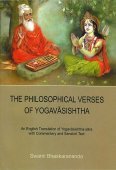Mahidhara, Mahīdhara, Mahīdharā, Mahi-dhara: 30 definitions
Introduction:
Mahidhara means something in Buddhism, Pali, Hinduism, Sanskrit, Jainism, Prakrit, the history of ancient India, Marathi. If you want to know the exact meaning, history, etymology or English translation of this term then check out the descriptions on this page. Add your comment or reference to a book if you want to contribute to this summary article.
Mahidhara has 29 English definitions available.
Languages of India and abroad
Sanskrit dictionary
[Deutsch Wörterbuch]
Source: Cologne Digital Sanskrit Dictionaries: Böhtlingk and Roth Grosses Petersburger WörterbuchMahīdhara (महीधर):—[(ma + dhara)]
1) adj. die Erde tragend: nāga [Harivaṃśa 11556.] gaja [Śatruṃjayamāhātmya 14, 20.] —
2) m. a) Berg [Hemacandra’s Abhidhānacintāmaṇi 1027,] [Scholiast] [Mahābhārata.1,1132.3,2442. 8518.5,55.] [Rāmāyaṇa.2,48,13.6,36,11.] [Raghuvaṃśa.6,52.] [Kumārasaṃbhava.6,89.] [Spr. 5179.] [VṚDDHA-Cāṇakya 15,19.] [Oxforder Handschriften 255,b,18.] — b) Beiname Viṣṇu’s [Hemacandra’s Abhidhānacintāmaṇi 217,] [Scholiast] [Oxforder Handschriften 185,a,5.] — c) Nomen proprium eines Devaputra [Rgva tch’er rol pa ed. Calc. 346, 10.] — d) Nomen proprium eines Fürsten [Kathāsaritsāgara 7, 103.] eines Kaufmanns [67, 44.] eines Sūtradhāra Journ. of the Am. Or. [S. 6, 533.] verschiedener Scholiasten (unter Anderen eines der [Vājasaneyisaṃhitā][?) u.s.w. Bibliothecae sanskritae 80. Weber’s Verzeichniss No. 542. 640. Oxforder Handschriften 99,a, No. 154. 100,b, No. 155. 172,b, No. 382. 232,b, No. 563. 357,a, No. 848. HALL 122.] — Vgl. mahīdhra .
--- OR ---
Mahīdhara (महीधर):—
2) d) Nomen proprium [Kathāsaritsāgara 112, 137. 120, 53.]
Source: Cologne Digital Sanskrit Dictionaries: Sanskrit-Wörterbuch in kürzerer FassungMahīdhara (महीधर):——
1) Adj. die Erde tragend. —
2) m. — a) Berg. — b) Beiname Viṣṇu’s [Viṣṇupurāṇa 5,5,21.] — c) Nomen proprium — α) eines Devaputra. — β) verschiedener Männer.
Sanskrit, also spelled संस्कृतम् (saṃskṛtam), is an ancient language of India commonly seen as the grandmother of the Indo-European language family (even English!). Closely allied with Prakrit and Pali, Sanskrit is more exhaustive in both grammar and terms and has the most extensive collection of literature in the world, greatly surpassing its sister-languages Greek and Latin.
See also (Relevant definitions)
Starts with: Mahidhara mishra, Mahidharadatta, Mahidharaiya.
Ends with: Samahidhara.
Full-text (+403): Vedadipa, Bhuvanti, Pilippila, Rudrahuti, Manivala, Mahidharadatta, Nishangadhi, Luptopamana, Pushkarasadin, Panktra, Pummriga, Bilmin, Pharv, Kakavairin, Nipur, Tega, Syu, Mahidhra, Matasna, Halikshna.
Relevant text
Search found 34 books and stories containing Mahidhara, Mahīdhara, Mahīdharā, Mahi-dhara, Mahī-dhara, Mahidhar, Mahīdhar; (plurals include: Mahidharas, Mahīdharas, Mahīdharās, dharas, Mahidhars, Mahīdhars). You can also click to the full overview containing English textual excerpts. Below are direct links for the most relevant articles:
Chaitanya Bhagavata (by Bhumipati Dāsa)
Verse 1.1.67 < [Chapter 1 - Summary of Lord Gaura’s Pastimes]
Verse 3.4.301 < [Chapter 4 - Descriptions of Śrī Acyutānanda’s Pastimes and the Worship of Śrī Mādhavendra]
Verse 3.5.486 < [Chapter 5 - The Pastimes of Nityānanda]
Rudra-Shiva concept (Study) (by Maumita Bhattacharjee)
2. Vājasaneyi-saṃhitā (b): Rudra’s weapons < [Chapter 2 - Rudra-Śiva in the Saṃhitā Literature]
2. Vājasaneyi-saṃhitā (a): Physical appearance of Rudra < [Chapter 2 - Rudra-Śiva in the Saṃhitā Literature]
2. Vājasaneyi-saṃhitā (g): Malicious aspects of Rudra < [Chapter 2 - Rudra-Śiva in the Saṃhitā Literature]
Rivers in Ancient India (study) (by Archana Sarma)
2(c). Sarasvatī and Sārasvata < [Chapter 2 - The Rivers in the Saṃhitā Literature]
2(a). The river Sarasvatī in the Vājasaneyī-saṃhitā (Introduction) < [Chapter 2 - The Rivers in the Saṃhitā Literature]
2(b). Different epithets of Sarasvatī < [Chapter 2 - The Rivers in the Saṃhitā Literature]
Trishashti Shalaka Purusha Caritra (by Helen M. Johnson)
Part 6: Story of Vanamālā < [Chapter V - The kidnapping of Sītā]
Part 6: Mahāpadma’s adventures in voluntary exile < [Chapter VIII - Śrī Mahāpadmacakricaritra]
Part 17: Ninth incarnation as a physician Jīvānanda < [Chapter I]
The Agnistoma Somayaga in the Shukla Yajurveda (by Madan Haloi)
Part 2.1: Types of Sacrifices in General (Introduction) < [Chapter 2 - An Introduction to the Ritualistic Religion of the Vedas]
Part 4.8: Preparation of the Dhiṣṇyas < [Chapter 4 - The Agniṣṭoma Ritual]
Part 2: Vājasaneyī Saṃhitā (Introduction) < [Chapter 1 - Introduction]
List of Mahabharata people and places (by Laxman Burdak)
Related products

